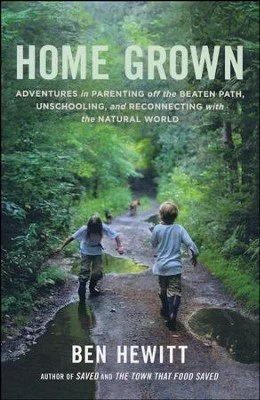Unschoolers tend to believe that the most important issues of our lives deserve our personal attention, and that our personal attention, in turn, is naturally drawn to what is important—if it’s not schooled out of us. John Holt had precious little tolerance for easy answers—for curricula which would automatically make us healthy, wealthy, and wise; for experts who grew frustrated when asked for examples; and for Big Science Business Government who wrested from people their ability to educate, feed, or physic themselves.
Read MoreThis is about more than just saving money: when the internet is a place where anyone, anywhere, can set up a website to talk about their passion and interact with like-minded people, and where anyone with an internet connection can find them, self-directed learning can take us anywhere … If we can't save net neutrality, young people who want to take charge of their own education will find that the internet has been turned into just another place where someone else decides what they can read, watch, and listen to …
Read MoreSlow down, you move too fast! Here are some concrete actions and inspiring ideas for stepping way from conventional, multitasked, overscheduled family life and on to the path of home and community built on shared responsibilities and self-directed learning.
Read MoreSitting in a classroom or at home in front of a teaching machine is hardly a major advancement for a child’s social, physical, and mental growth. Our 19th century school assumptions about how learning happens bind us to an industrial model of the school as a knowledge factory, rather than a model of people as active learners. The photo on this post is from an article about the history of B.F. Skinner and his teaching machine by Audrey Watters.
Read MoreThe questions from parents that Blake responded to at his talk are the same ones myself and others in homeschooling for the past 30+ years also asked when we started—childrearing issues don't differ from previous generations as much as our external circumstances do—and I feel obligated to pass those answers forward . . .
Read MoreStriking comments and evidence from mainstream economists that increasing college graduation rates and getting better job training are diversions from the real work of finding work worth doing and getting paid fairly for it . . .
Read MoreHelp us make John Holt's videos accessible in other languages and to the deaf by joining our new video captioning project . . .
Read MoreYou see children making things a lot when you learn at home with them, and many deep lessons are embedded in these projects. Here are some interesting DIY projects made possible by the Internet . . .
Read More"I think children need slowness even more than adults do. It’s in those moments of quiet, of unstructured time, of boredom even, that kids learn how to look into themselves, how to think and be creative, how to socialize. We are doing a great disservice to our children by pushing them so hard to learn things earlier and earlier and by keeping them so busy . . ."
Read MoreThe Common Core Curriculum eliminates handwriting in favor of teaching keyboarding skills instead. This might make sense on paper, but are we seeing the future clearly with this change?
Read MoreA new study shows that exposing children under 2 to learning videos, apps, and other screen-based educational products is not effective and the educational claims being made by the manufacturers are overblown. But parents seeking an edge for their child continue to purchase these products . . .
We need to shift our thinking from a goal that focuses on the delivery of something—a primary education—to a goal that is about empowering our young people to leverage their innate and natural curiosity to learn whatever and whenever they need to. The goal is about eliminating obstacles to the exercise of this right—whether the obstacle is the structure and scheduling of the school day, the narrow divisions of subject, the arbitrary separation of learners by age, or others—rather than supplying or rearranging resources. (p. 6)
Read More










